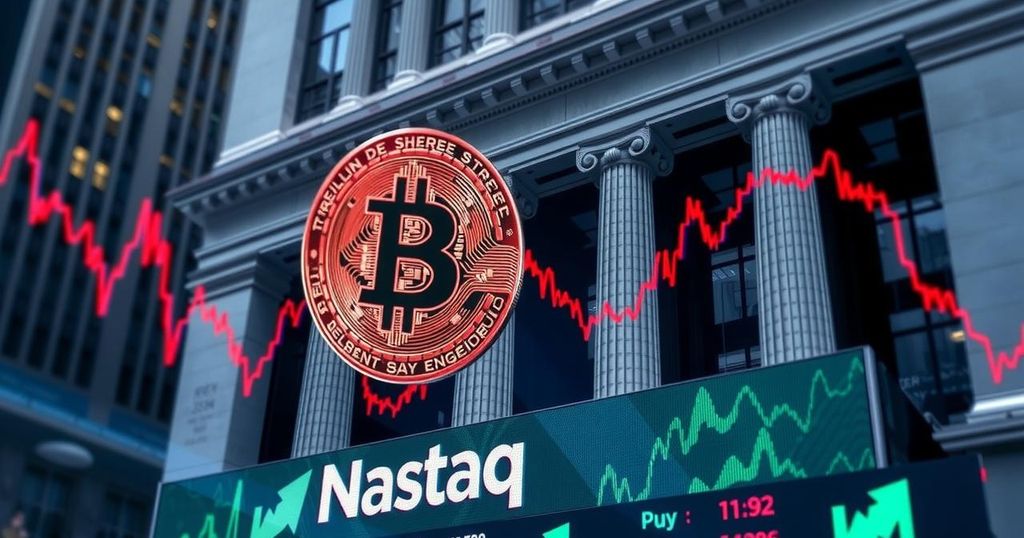Nasdaq Hits Record High as Tech Stocks Rally and Bitcoin Surges
The Nasdaq Composite reached a record closing high of 20,173.89, driven by gains in major tech stocks like Apple and Tesla. Bitcoin surged past $107,000 following MicroStrategy’s investment announcement. The S&P 500 also rose, while the Dow faced an eighth day of declines. Market focus shifts to the Federal Reserve meeting for potential interest rate cuts amid inflation concerns.
The technology sector experienced significant gains, driving the Nasdaq Composite to a record closing high fueled by strong performances from leading companies. Notable contributors include Apple, Alphabet, Tesla, and Broadcom, with the Nasdaq finishing up 1.24% at 20,173.89. Meanwhile, Bitcoin reached unprecedented heights, surpassing $107,000 following MicroStrategy’s announcement of substantial additional purchases. The S&P 500 index rose by 0.38%, while the Dow Jones Industrial Average endured its eighth consecutive decline. The Federal Reserve’s imminent meeting has heightened speculation regarding future interest rate adjustments amidst concerns over inflation and potential economic instability under upcoming government policies.
The stock market is currently influenced by the performance of major technology companies, which have shown robust growth. This has resulted in a significant increase in market indices, particularly the Nasdaq. Furthermore, the Federal Reserve’s forthcoming policy meeting is a critical event, as its outcomes regarding interest rate adjustments could have lasting implications for the economy and market behaviors. The performance of Bitcoin adds another layer of complexity to the financial landscape, reflecting investor sentiment and crypto-market trends.
In summary, the technological sector continues to play a pivotal role in market dynamics, as evidenced by the Nasdaq reaching a new peak. The rise of Bitcoin further demonstrates growing investor interest in alternative assets. Attention now turns to the Federal Reserve and its anticipated policy decisions, which could shape future economic stability and influence equity market trends.
Original Source: www.usatoday.com








Post Comment